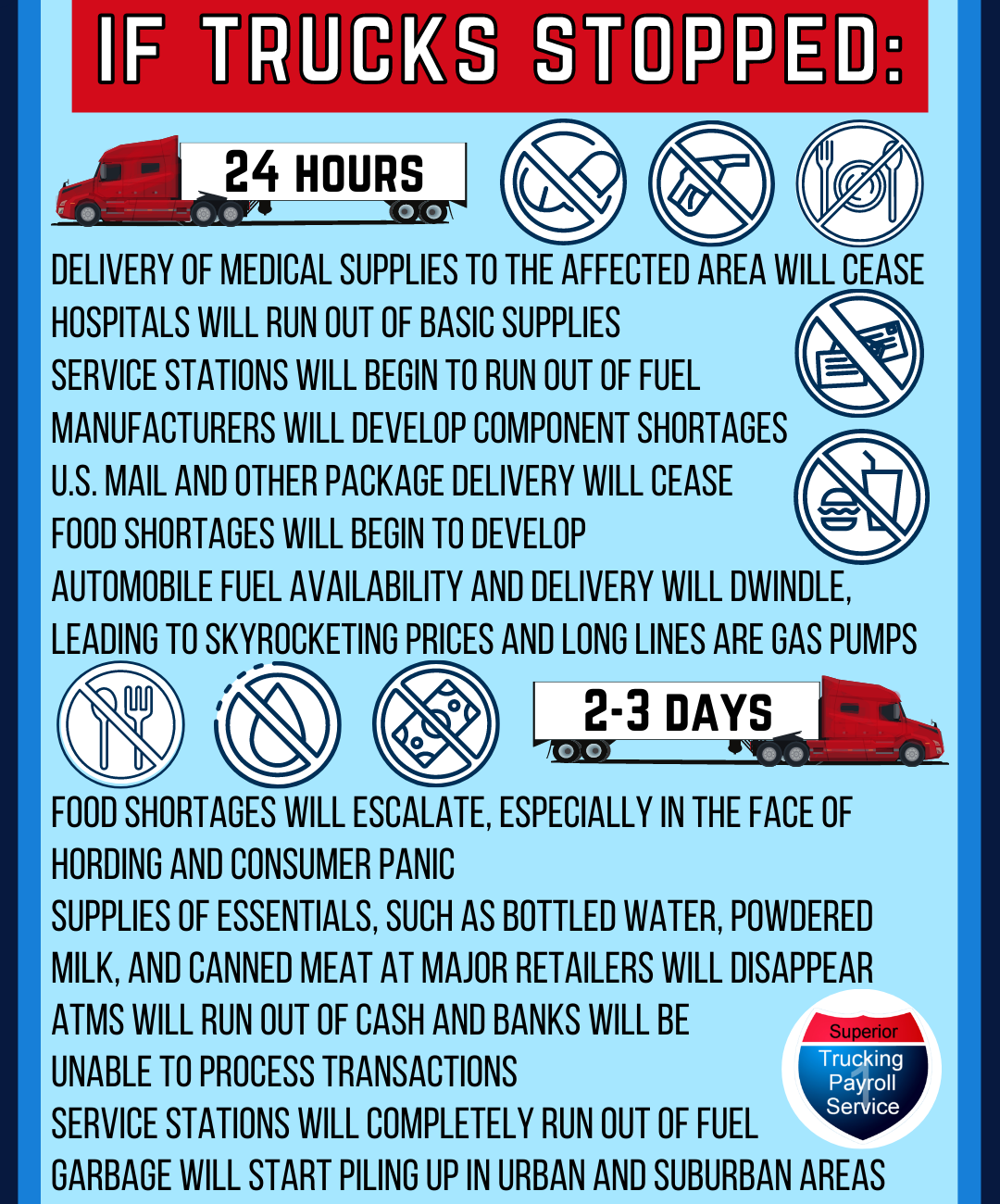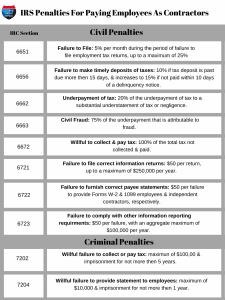If you’ve ever bounced over a deep pothole in early...
Read MoreJohn Oliver, the host of ‘Last Week Tonight’, focused on the trucking industry for his April 3rd episode, and boy do we have some thoughts.
John starts the show by playing some clips of just a few of the trucking TV shows I’m sure we have all seen at least a few episodes of. He then shares the news that anyone outside of trucking may not know: that trucks haul 70% of the tonnage here in America. That’s no small amount!
It just goes to show how important the trucking industry is. Which just happens to be his next point. Shocking I know… He then cuts to an interview with a trucker at a diner. The Trucker is telling the camera what would happen if trucks were shut down for even one week. While he is mid-thought the guy behind him cuts in saying “three days”. They both agree that it would only take three days of trucks not moving to shut the entire country down.
In fact, within the first 24 hours, delivery of medical supplies would cease, and hospitals would run out of basic supplies. Service stations would begin to run out of fuel, which would lead to skyrocketing prices and long lines at gas pumps. In addition to this, U.S. mail services and other package delivery would cease, and within one day food shortages would begin to develop.

After making sure the world knows just how important truckers are, he then addresses the driver shortage. I’m not going to lie, I sat up straight & leaned in waiting to see what he was going to say. At only 1:45 into the story if he blew this he was going to lose me right there.
By 2:47 I leaned back in my chair quietly saying “Preach”. He nailed it. There isn’t a driver shortage, there is a driver retention problem! The average driver turnover is over 100%. That’s not even the worst of it. Some trucking companies have a turnover rate of 300%. THREE HUNDRED PERCENT.
What is your turnover rate? If you don’t know then I highly suggest you stop right now and go find out. Just come back when you are done because we have a lot more ground to cover.
Don’t think it’s that important? Think about this, how much does it cost you to hire a new driver? A quick google search will tell you that in 2001 it could range from $2,000 – $15,000 PER DRIVER. Seriously go do the math. I’ll wait. But again come right back. We are only three minutes into everything John has to say.
“When a field this important has a level of job satisfaction that low
it sure seems like there is a huge problem.”
– John Oliver
I’m going to break the rest of this up the same way John did, in three parts. How drivers make a living, how they often don’t, and how companies benefit from the whole miserable system.
How drivers make a living:
As we all know most truckers are paid by the mile. Some are paid by load or by percent, but the most common is by the mile. While you can make good money being paid by the mile. John brings up something we all also know to be true. A lot of the drivers’ time goes unpaid waiting for the trucks to be loaded or unloaded. That’s not his main point though. After a driver loses half the day waiting for the truck to be loaded they still have a deadline to meet. His main point is the safety issue it can cause. In the KOB4 article from 3/23/22 John sites, “roughly 5,000 people die every year in crashes involving large trucks.”

John then goes on to talk about the things the government has put in place to try to address these safety concerns. Things like mandating breaks and limiting the number of miles a trucker can drive in a day. While these things might help in some cases they don’t really fix the problem. In fact, if you listen to the story one trucker tells at 8:30 it actually can make things much worse. While I do understand what the government is trying to do to help solve the problem, I also have to agree that this problem is far from solved.
If you don’t think that happens then take a look at this new release from the U.S. Department Of Labor.
Two drivers told their company they were not safe to drive, and then refused to do so. Both drivers were issued disciplinary points for this and as a result, one was fired. The U.S. Department Of Labor has issued the company to pay more than $145,000 in back wages to the two drivers.
How often they don’t:
“Many carriers classify drivers not as employees, but as independent contractors. While there are some to whom that label truly applies. Those who genuinely have the freedom to choose between different loads, and haul for whomever they want. The fact is, many companies misclassify drivers as independent who work exclusively for them, and whose day-to-day lives they fundamentally control.”
– John Oliver

Companies often misclassify drivers as independent contractors or 1099 drivers. Sometimes the company may honestly not know the difference or why it matters, but more often than not it’s not a mistake and it’s done to “save money”.
This can leave the driver with less money than if they were paid by W2. Now don’t get me wrong-a true 1099 drivers can make some good money, but we all too often see these misclassified drivers making far less money than they thought they were going to be when everything is said and done. I’ve seen the story shared at 11:30 too many times to say it’s not a common occurrence.
The other thing John wants to point out before moving on is lease-purchase agreements.
“Drivers who participate in lease-to-own agreements
almost never succeed.”
– John Oliver
Very few drivers who enter lease-purchase agreements actually end up owning the truck. What ends up happening is drivers get stuck. They can only haul what the company wants them to when they want you to, and the real kicker is the driver pays THEM to do it. It’s very common for drivers in these situations to make very little if not actually owning the company money at the end of the week.
Now, this isn’t always the case, but it is what happens 9 times out of 10. Especially if the company adds on nickel and dime charges such as paying to park the truck in the company’s lot or as John notes, even toilet paper.
Two things John didn’t get to is how much this misclassification can cost you, and sometimes the driver wants to be misclassified.
How companies benefit from the whole miserable system:
As John points out, companies who misclassify their drivers don’t have to pay vacation, sick time, benefits, bereavement, holiday pay, health insurance, retirement, payroll taxes, workers compensation, unemployment insurance, and more. Many companies can and do get away with this. It won’t last forever though because the IRS is cracking down, so it’s ‘when’ not ‘if’. When companies who do this are caught they will face very large fines. Often times the fines are enough to put a small to medium trucking company out of business.

So what can we do?
To close things out John points out that the department of transpiration and the department of labor is set to examine the lease agreements, driver pay, and that unpaid detention time. We can hope they do more than just examine it and actually help fix some of the problems.
In the meantime, though there are things that you can be doing to help your company and improve your driver retention.
Remember that math I told you to go do? Think about how much money you have wasted on hiring the wrong drivers while I go over this list:
Pay the drivers the right (legal) way
Hiring the right drivers in the first place
Make it Easy for the Driver to want to work for you
Look at what benefits you can afford to offer (an IRA would be a great option)
“The key way to stop this so-called ‘shortage of drivers’ that we have actually had for years now,
is to make this a job people actually want to stay in!”
– John Oliver
Not that I think John will ever see this but I still want to thank him for taking the time to shine a light on the problems that we face in the trucking industry.

Written by Harley VanDyke
Harley joined Superior Trucking Payroll Service (STPS) in early 2019. With nine years of customer service experience, she truly understands what it takes to make our clients happy. She loves working at STPS because of the family-like atmosphere. Harley’s favorite place to be is Traverse City, Michigan or anywhere that has hippos.
Contact Us!
Is Superior Trucking Payroll Service Worth the Higher Cost?
You’re Not Just Buying Payroll — You’re Buying Peace of...
Read MorePayroll for Trucking Companies: We Help Your Whole Trucking Family Get Paid
If you’ve heard of Superior Trucking Payroll Service, you’ve probably...
Read MoreHow Do I Pay Myself If My LLC Is an S-Corp or C-Corp?
How do I pay myself if my LLC is taxed...
Read MoreMarch 2025 Driver Pay Update for Trucking Companies
Are your drivers leaving for better pay? Are you wondering...
Read More